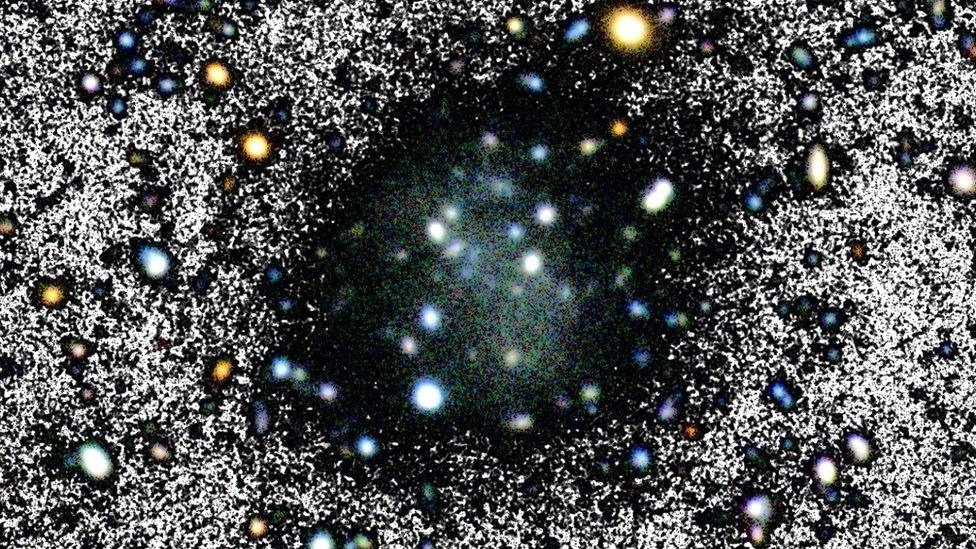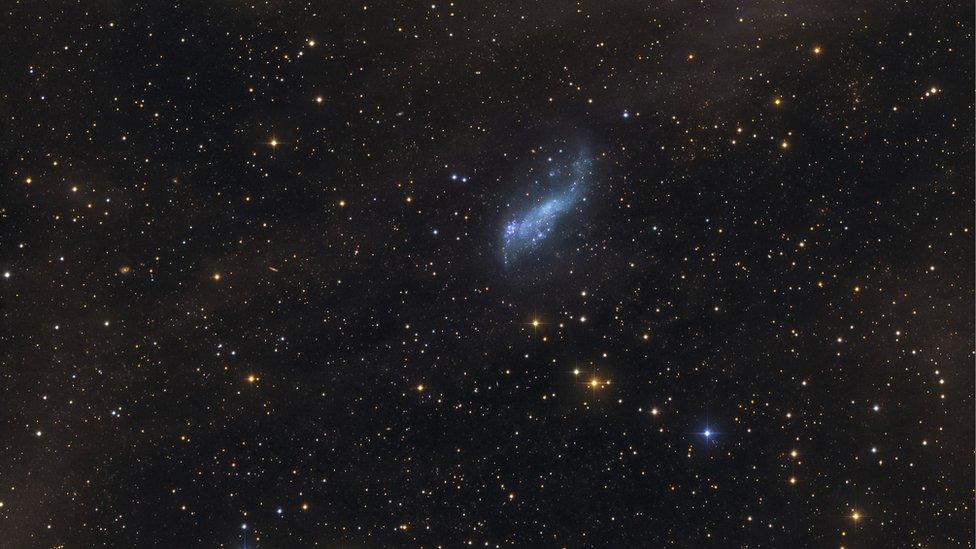Nube: Scientists discover almost invisible dwarf galaxy
- Published
- comments

Scientists have been left puzzled after discovering a mysterious galaxy, which they say is almost invisible.
Named Nube, the dwarf galaxy is thought to be located around 300 million light years from the Milky Way.
The galaxy's stars are spread out across such a large area, that researchers say its brightness is so faint that it has gone unnoticed in previous sky surveys.
Nube is unique in the way it has a low mass at it centre, meaning experts are trying to find out how the galaxy is kept together!
How was Nube found?

Dwarf galaxies are small galaxies composed of around 1000 up to several billion stars
Nube was discovered by an international team led by the Institute of Astrophysics of the Canary Islands and the University of La Laguna in Spain.
Researchers made the find after reanalysing data collected by the Sloan Digital Sky Survey - one of the largest surveys of the night sky.
The name Nube means 'cloud' in Spanish, and was suggested by the 5-year-old daughter of one of the researchers in the group due to the appearance of the galaxy.
Dwarf galaxies are small galaxies composed of a few billion stars - compared to larger galaxies, which can contain hundreds of billions of stars!
What is so special about Nube?
Experts say that Nube has unusual properties which distinguish it from other dwarf galaxies.
The galaxy is ten times fainter than most other galaxies of the same size. In fact, it's so dim, that scientists aren't exactly sure where it is located!
It is also ten times wider than it should be, given the number of stars it has.
Mireia Montes, the study's lead author said: "With our present knowledge we do not understand how a galaxy with such extreme characteristics can exist."
She added: "It is possible that with this galaxy, and similar ones which we might find, we can find additional clues which will open a new window on the understanding of the universe."
